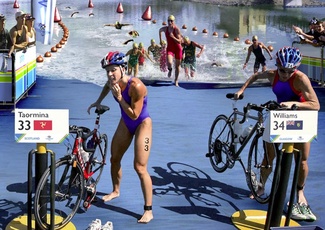
Up to relatively recently, triathlon was a sport with little prize money and exposure. The last number of years, however, has seen a major increase in both participation and general interest in the sport. The ITU World Triathlon Series increased its total prize money for 2013 by over 9% to over $2.25 million (see here), while some Ironman races offer first prizes of $75,000 with the Ironman World Champion winning $650,000 (see here). TV coverage has also increased with Sky showing regular highlights of the ITU Series and Setanta covering the Ironman series. All else equal, one would expect the greater prize money and TV exposure to increase the incentive to dope.
Anti-doping regulation in triathlon is, in theory, on a par with most sports as the two main triathlon bodies, the International Triathlon Union (ITU) and the World Triathlon Corporation (WTC), have incorporated the World Anti-Doping Agency (WADA) ‘Code’(see here) and have also introduced the Athlete Biological Passport (ABP) scheme(see here). While a small number of triathletes have been found guilty of doping offences in the last number of years, there are still gaps in the testing mechanism (see here for a more in-depth discussion).
One of the major reasons for doping in cycling was that the cyclists and their medical teams were so far ahead of the testers that the likelihood of detection was effectively zero (see Tyler Hamilton’s ‘The Secret Race’ for many examples of this). For instance, it was many years after the introduction of EPO as a doping product before a definitive EPO test was established. The relatively high prize money for successful cyclists and their teams often facilitated substantial monetary payments from cyclists to their‘medical advisers’ and may also have encouraged the culture of ‘omerta’ in the sport. The relatively low prize money and sponsorship levels in triathlon, and the fact that it is an individual sport, may help to explain why doping has not pervaded triathlon like it did cycling.
Despite all of the above, maybe the answer to the title question is found in a previous contribution to this blog by David Butler (see here) which concluded that “Whether it is athletics, cycling or baseball the force of prohibiting third parties may be no match for the power of local social norms that are fostered and enforced within groups”. Doping may simply be so abhorrent to the triathlon community that the cost of doping simply never outweighs any possible benefit.
 RSS Feed
RSS Feed